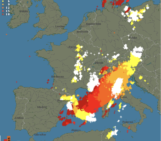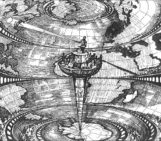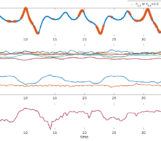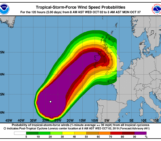The NPG paper of the month for January 2023 was awarded to “Brief communication: Climate science as a social process – history, climatic determinism, Mertonian norms and post-normality” by Hans von Storch.
One could argue that climate science is part of geophysics, or more precisely that part of climate science is part of geophysics. But when referring to ”processes” in ”Nonlinear Processes in Geophysics”, does that include ”social processes”? Not among the topics, the discipline is engaged with, but social processes have an impact on the practice of doing geophysical research. Remains the word ”nonlinear”, which is a non-word. We know what an Elephant is but not what a non-Elephant is. Usually it is meant that the state variables are mathematically connected by functional dependencies, which cannot be written as linear equations but feature some other terms, which may be polynomial, exponential, but also non-continuous with breaks etc. But social dynamics can hardly be forced into mathematically fixed relationships, certainly not in linear ones. Thus, social dynamics are certainly not linear, even if this attribute is more or less meaningless in this context.
The abstract of the paper is this:
Since ages, the topic of climate – in the sense of “usual weather” – has in the western tradition attracted attention as a possible explanatory factor for differences in societies and in human behavior. Climate, and its purported impact on society, is an integrated element in western thinking and perception.
In this essay, the history of ideas about the climatic impact on humans and society, and the emergence of the ideology of climatic determinism are sketched from the viewpoint of a natural scientist. This ideology favored the perception of westerners being superior to the people in the rest of the world, giving legitimacy to colonialism.
In modern time, when natural sciences instituted self-critical processes (repeatability, falsification) and norms (such as the Mertonian norms named CUDOS), the traditional host for climate issues, namely geography, lost its grip, and physics took over. This “scientification” of climate science led to a more systematic, critical, and rigorous approach of building and testing hypotheses and concepts. This gain in methodical rigor, however, went along with the loss of understanding that climate is hardly a key explanatory factor for societal differences and developments. Consequently, the large segments of the field tacitly and unknowingly began reviving the abandoned concept of climatic determinism. Climate science finds itself in a “post-normal” condition, which leads to a frequent dominance of political utility over methodical rigor.
A 9-minutes video with the author summarizing the content is available at https://www.youtube.com/watch?v=x5E4xEGovrc.
How did it happen that I, as a natural scientist, wrote this article? – Climate science finds itself in a post-normal condition, with its achievements used in political dispute, often in a populist manner. While working at the Max-Planck Institute for Meteorology, after the key questions on suitable concepts – the Stochastic Climate Model and quasi-realistic models featuring at least atmosphere, oceans, cryosphere, and carbon cycle -, and methodology to separate internal and natural variability from anthropogenic impacts, we began wondering what the impacts of anthropogenic climate change would be and how the cultural construct of climate change would compete with the scientific constructions, in constraining or even guiding policy decisions. That is when I learned, we cannot do without social sciences.
How it came into NPG? – Valerio Lembo and others organized the seminar ”Perspectives on Climate Sciences – From historical developments to research frontiers” and he invited me to give one lecture – this lecture.
Thanks to Valerio Lembo to got me in this project; to Nico Stehr and Dennis Bray for introducing me to social sciences and researching a number of significant issues concerning climate science, to Klaus Hasselmann [1] for creating an open atmosphere to challenge the narrow limits of natural sciences. An anthology with various papers on the relationship of climate and society, will appear in April 2023 [2].
References
[1] Hans von Storch, editor. From Decoding Turbulence to Unveiling the Fingerprint of Climate Change – Klaus Hasselmann—Nobel Prize Winner in Physics 2021. Springer Cham, 2022.
[2] Nico Stehr and Hans von Storch. Science in Society. World Scientific (Europe), 2023.




